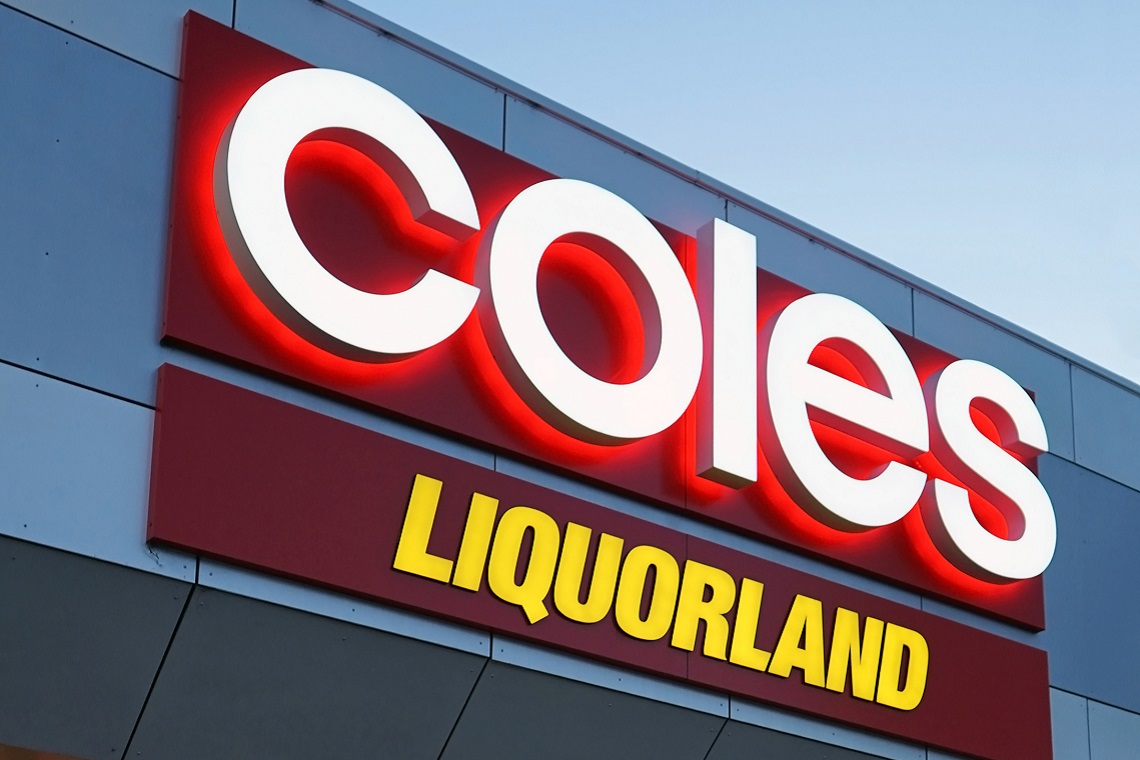Coles has reported another solid year of growth with increased revenue in its liquor, supermarket and express business bringing group sales revenue to $38.6bn, up 3.1 per cent on the prior year and 10.2 per cent on a two-year basis.
The three business groups experienced sales growth despite cycling elevated sales in the prior corresponding period due to the onset of COVID-19 and the subsequent national lockdown. Coles said that growth was driven by “strategic initiatives that resonated with customers” and customers spending more time living and working at home during COVID-19.
Group EBITDA increased by 5.4 per cent to $3.4bn and Group EBIT increased by 6.3 per cent to $1.9bn.
James Graham, Chairman of Coles Group, said: “The result highlights the commitment of the Group to grow trust and shareholder value in a year marked by extraordinary community and business challenges. Pleasingly, significant progress has been made in the development of new operating systems and the investment in new technology platforms which will further strengthen our long-term performance.”
In Coles Liquor sales revenue was $3.5bn for the year, an increase of 6.6 per cent on the prior corresponding period, with
comparable sales growth growing by 6.3 per cent, and 13.6 per cent on a two-year basis. For the fourth quarter, Liquor sales revenue decreased by 6.5 per cent and comparable sales growth decreased by 7.1 per cent as the business cycled elevated sales from COVID-19 and government imposed restrictions on licensed venue operators in the prior corresponding period when Liquor comparable sales growth was 20.2 per cent.
Coles said: “Sales growth was driven by all banners, categories and states, underpinned by a strong performance in eCommerce while spirits and RTDs were the key drivers of growth at the category level.
“Significant progress was made during the first year of Liquor’s refreshed strategy ‘to be a simpler, more accessible, locally relevant drinks specialist’. The key focus during the year was to ‘simplify and refocus’ the business, including the implementation of a new customer focused organisational structure and the introduction of a simplified operating model which has created a store environment that is more efficient to operate for team members and easier to shop for customers.
“Renewal activity occurred across all three banners during the year. The Black & White Liquorland format continues to perform well moving from test to trial during the year.
The First Choice Liquor Market format has now been rolled out to 79 per cent of the network. The new Vintage Cellars trial format continues to show promising results with 7 renewals completed during the year and successful low-cost elements rolled out across a further 12 stores.
“Both the Liquorland and Vintage Cellar renewals are resonating well with customers and team members. Optimisation of the Liquor store network continued during the year with 31 new stores opened and 12 stores closed, taking the total network to 929 Liquor sites. Liquor continues to maintain a focus on underperforming stores whilst developing a pipeline for future growth.”
Coles Liquor EBIT increased by 19.6 per cent for the year to $165m.
Steven Cain, CEO of Coles Group, said: “In another year of COVID-19, floods and bushfires, I would like to thank our team members, suppliers and community partners for their resilience and support to ensure the security of food supply and a safe environment for our customers.
“Whilst the COVID-19 Delta variant is presenting some new challenges, I would like to thank all levels of government for continuing to work with us to help keep our customers, team members and the community safe, including by providing priority access to vaccines in some critical areas.
“In February, we said the short-term outlook would be dependent upon the efficacy and pace of the vaccination program. Six months on, government forecasts are pointing to a more normal outlook from early in calendar 2022 including the longer-term prospect of increased migration.
“From a strategic perspective we have delivered a second year of far-reaching change, to begin creating a differentiated omnichannel Coles with more unique products, increased use of data, a leading eCommerce offer and investment in technology capability throughout the business.
“We have also progressed the roll out of successful new formats with Coles Local and Liquorland, and launched our new Together to Zero and Better Together sustainability strategy – all built around longer-term relationships with our supply partners.
“As we approach the halfway point of our transformation program, with strong foundations in place, and increasing investment in the business, I expect the pace of change at Coles to continue to accelerate to meet the changing demands of our customers and opportunities in the marketplace.”

